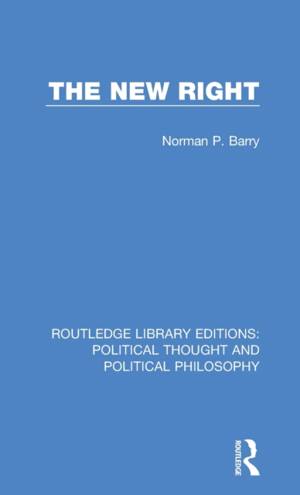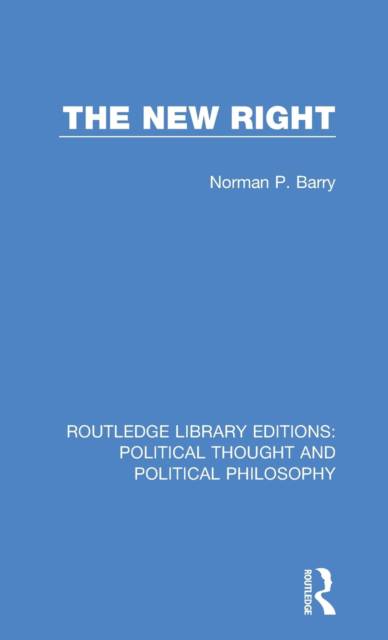
- Retrait gratuit dans votre magasin Club
- 7.000.000 titres dans notre catalogue
- Payer en toute sécurité
- Toujours un magasin près de chez vous
- Retrait gratuit dans votre magasin Club
- 7.000.0000 titres dans notre catalogue
- Payer en toute sécurité
- Toujours un magasin près de chez vous
The New Right
Norman P BarryDescription
First published in 1987. Towards the end of the twentieth century there was a resurgence of thinking about politics, economics and society referred to variously as the 'New Right', the radical right, neo-conservatism, economic liberalism or libertarianism. Although the New Right is not a single coherent movement it represented a clear alternative to the prevailing social-democratic consensus and had had considerable influence on government policy in both America and Britain.
This book presents an introductory survey of the New Right worldwide. It examines the varieties of free-market and 'monetarist' economic thought and introduces the reader to the public-choice critique of public policy. In political philosophy the book analyses American and British conservative thought and compares conservatism with neo-liberalism. The author pays particular attention to the New Right's analysis of constitutionalism and its critique of the dominance of 'politics' over 'economics' during the high-point of the consensus period. The author assesses the success which the different schools of the New Right have had in influencing public opinion and in the formation of government policy. He does not argue for or against the New Right but presents a dispassionate survey from which the reader can draw his or her own conclusions.
Spécifications
Parties prenantes
- Auteur(s) :
- Editeur:
Contenu
- Nombre de pages :
- 218
- Langue:
- Anglais
- Collection :
- Tome:
- n° 3
Caractéristiques
- EAN:
- 9780367230487
- Date de parution :
- 04-12-19
- Format:
- Livre relié
- Format numérique:
- Genaaid
- Dimensions :
- 140 mm x 216 mm
- Poids :
- 399 g

Les avis
Nous publions uniquement les avis qui respectent les conditions requises. Consultez nos conditions pour les avis.






